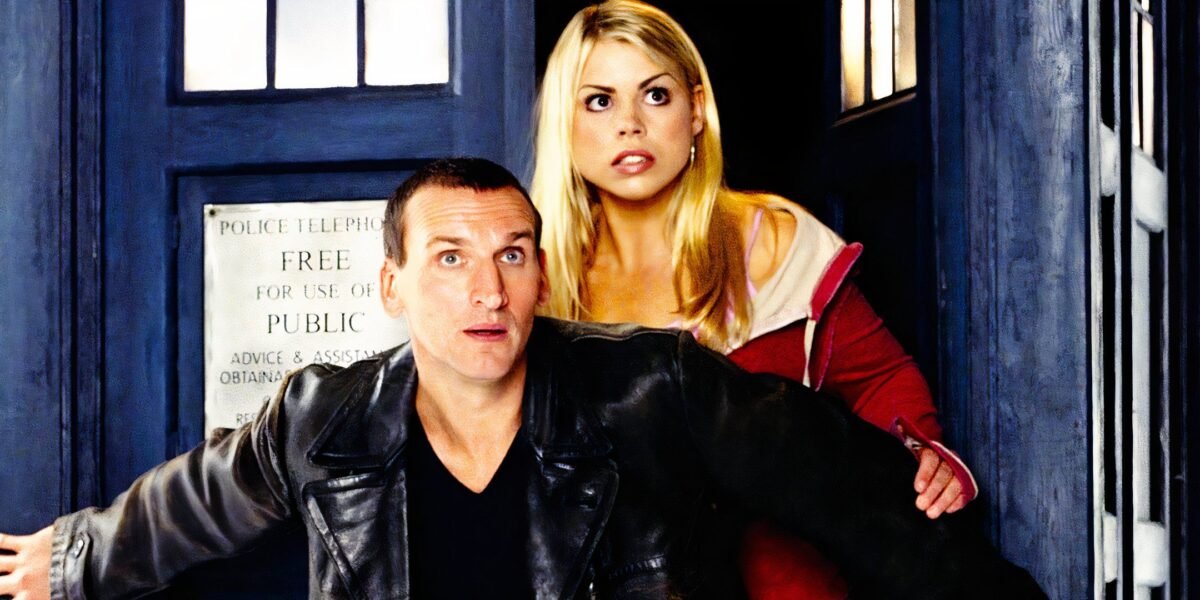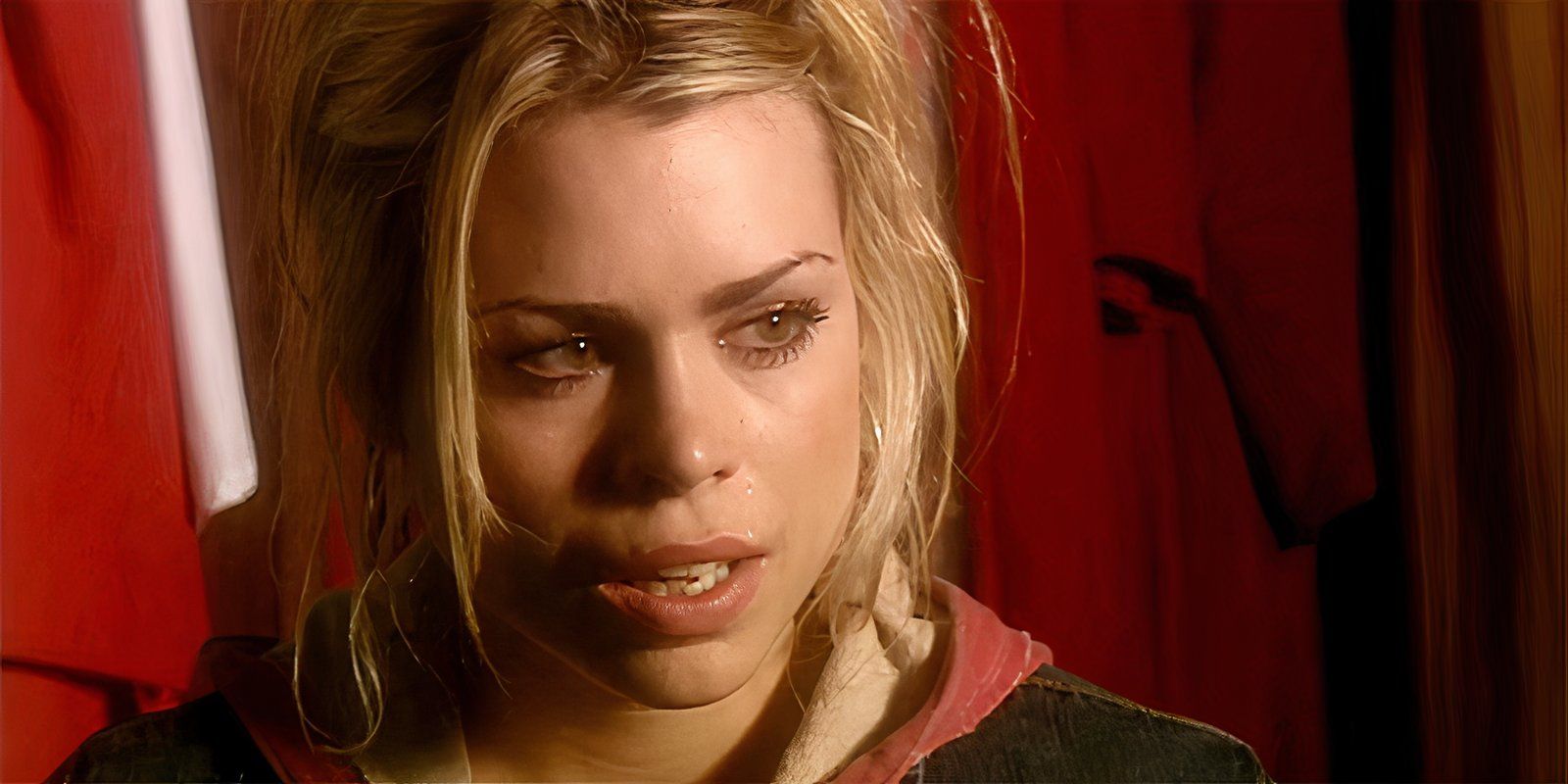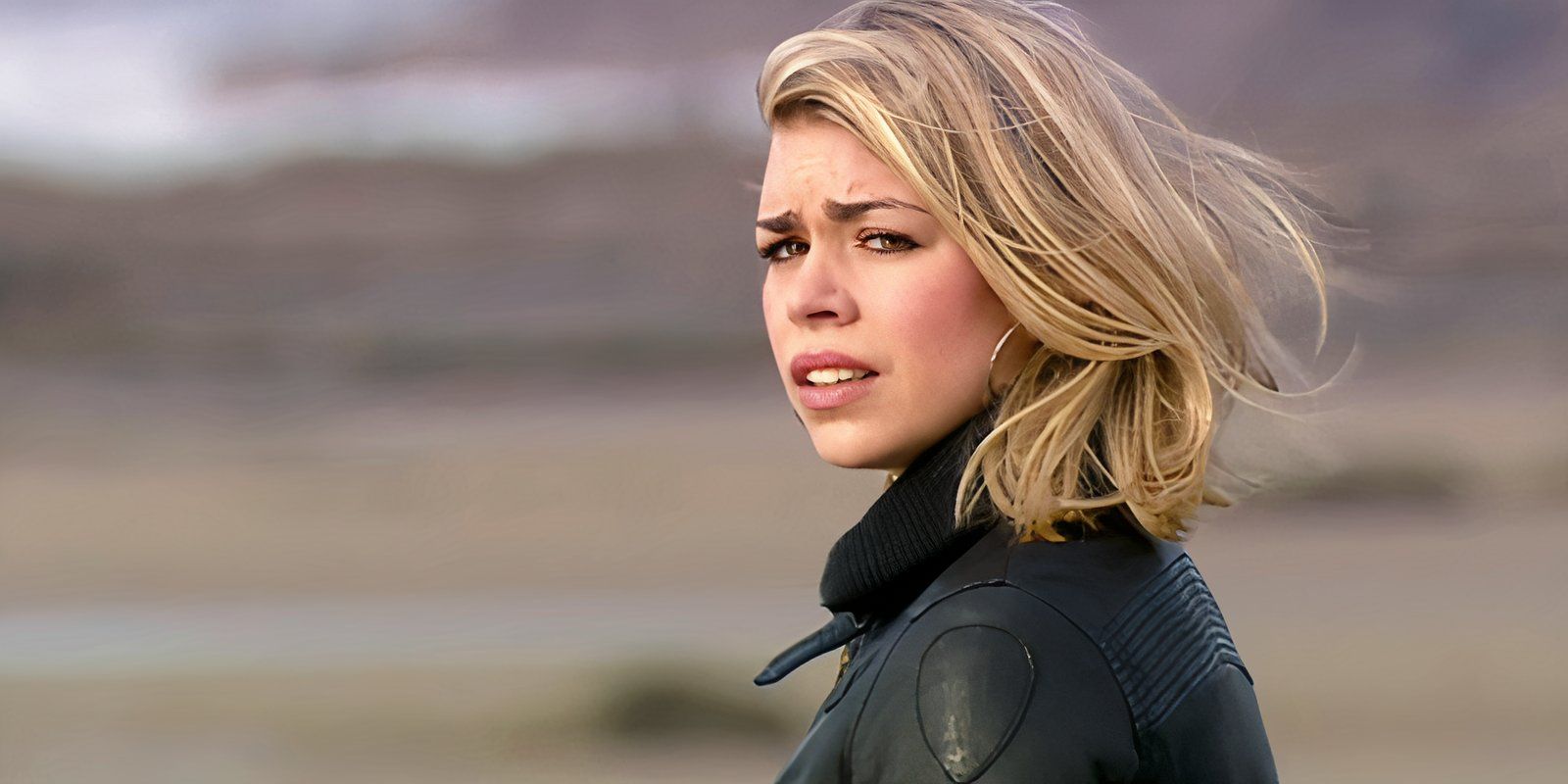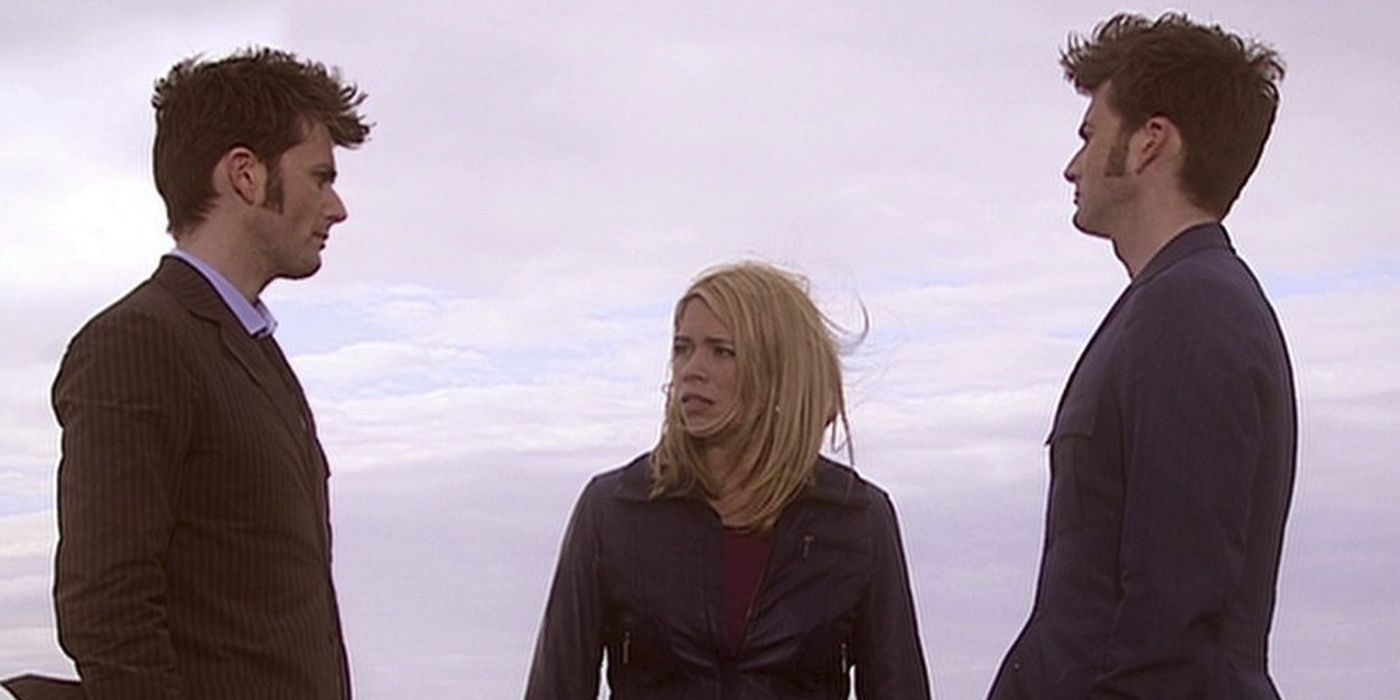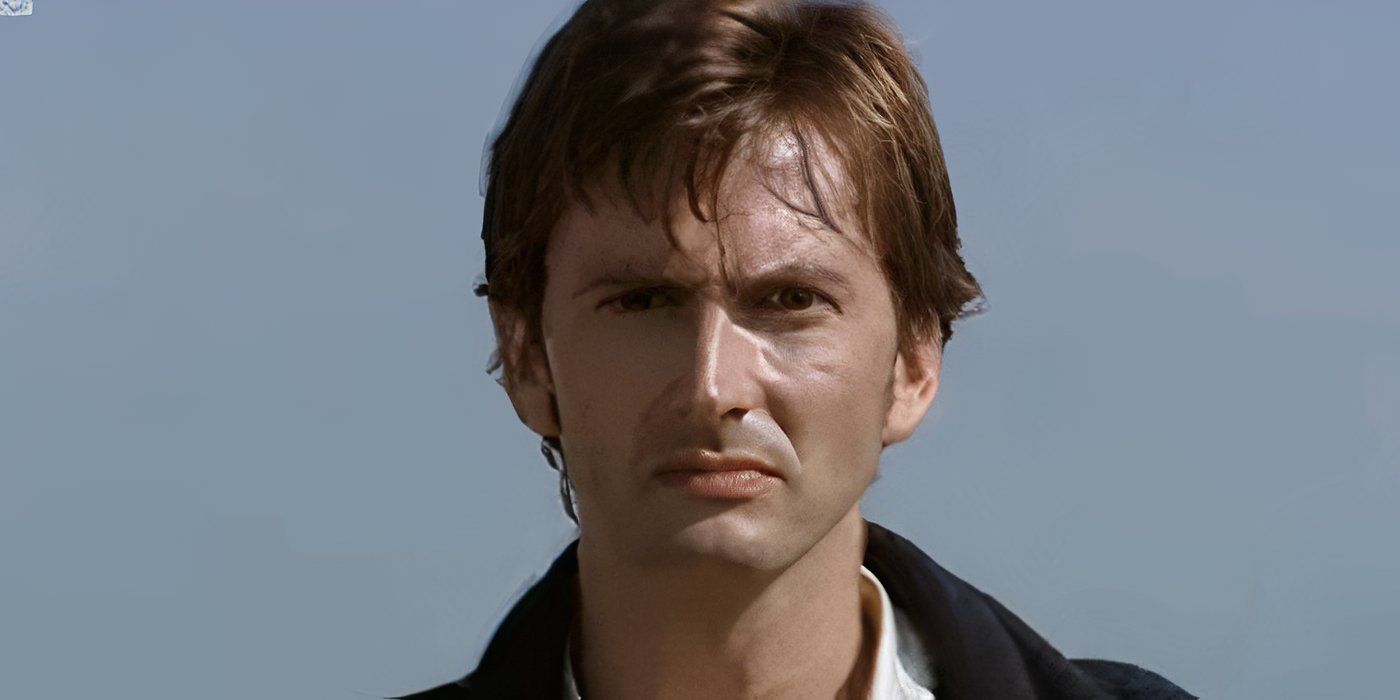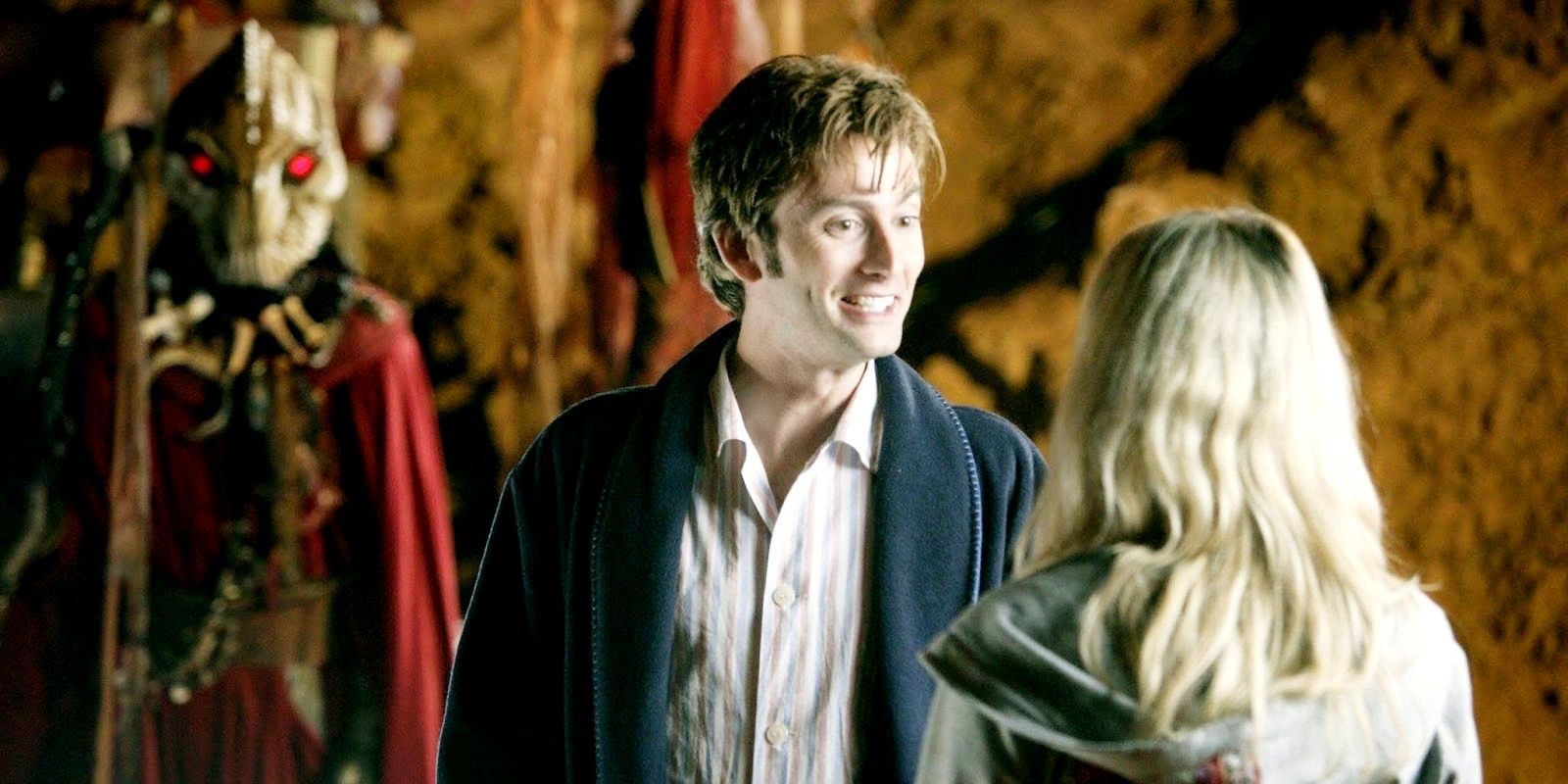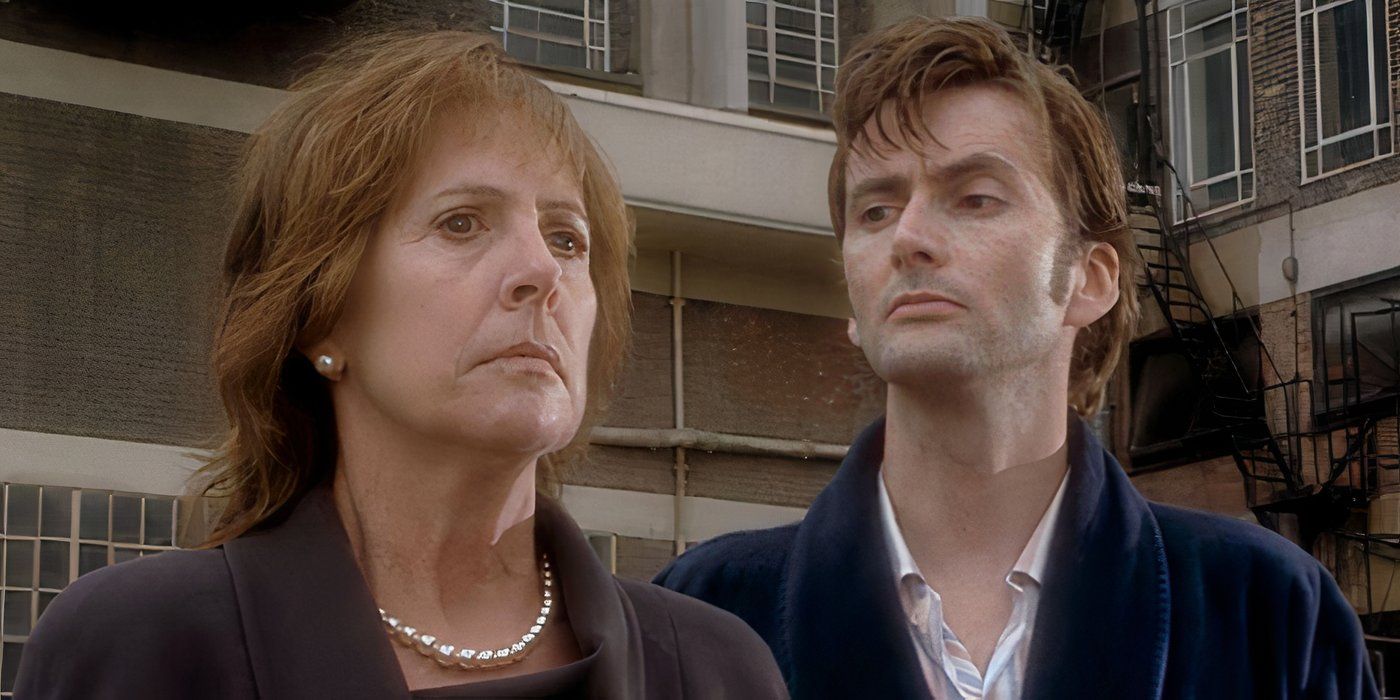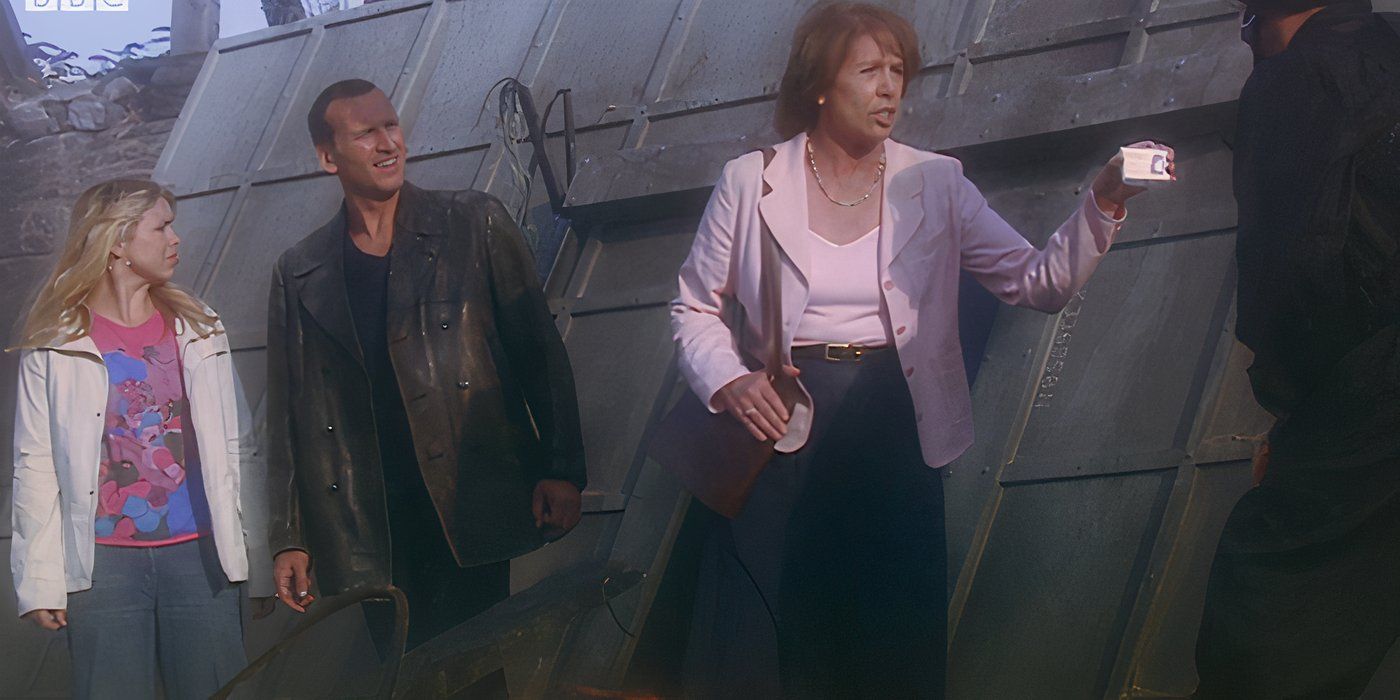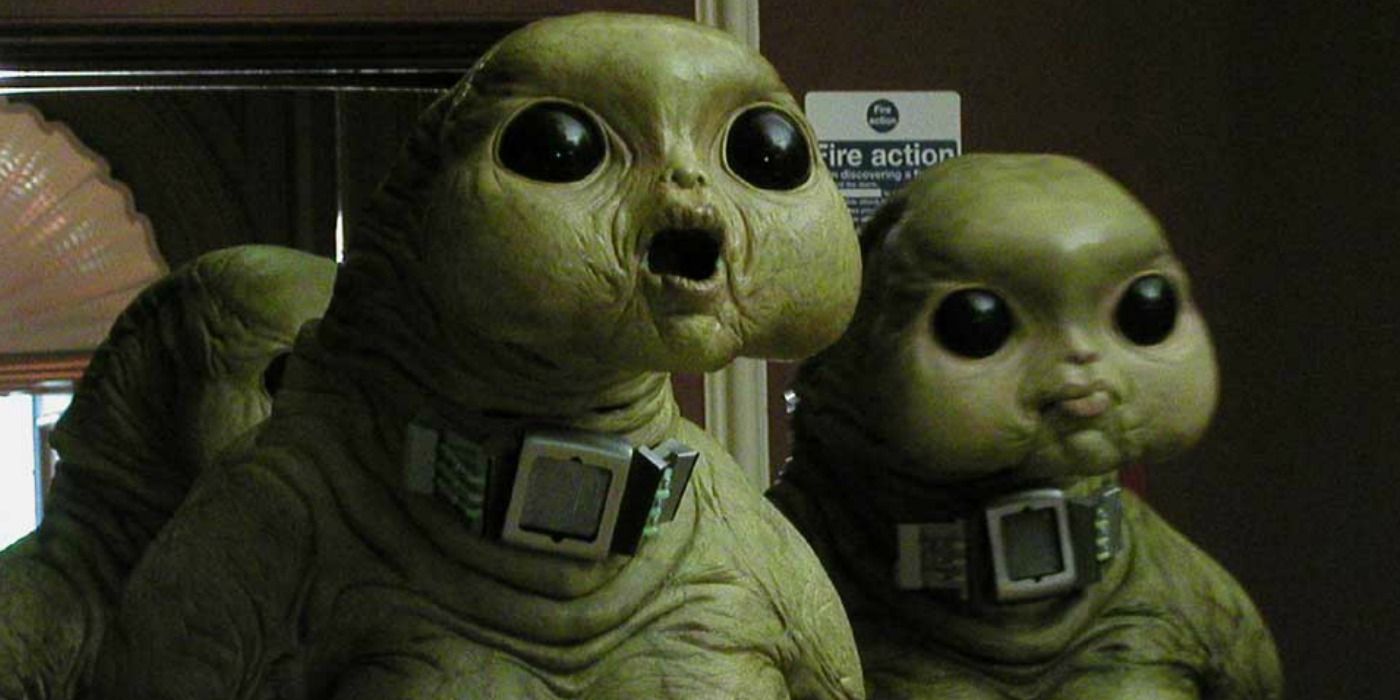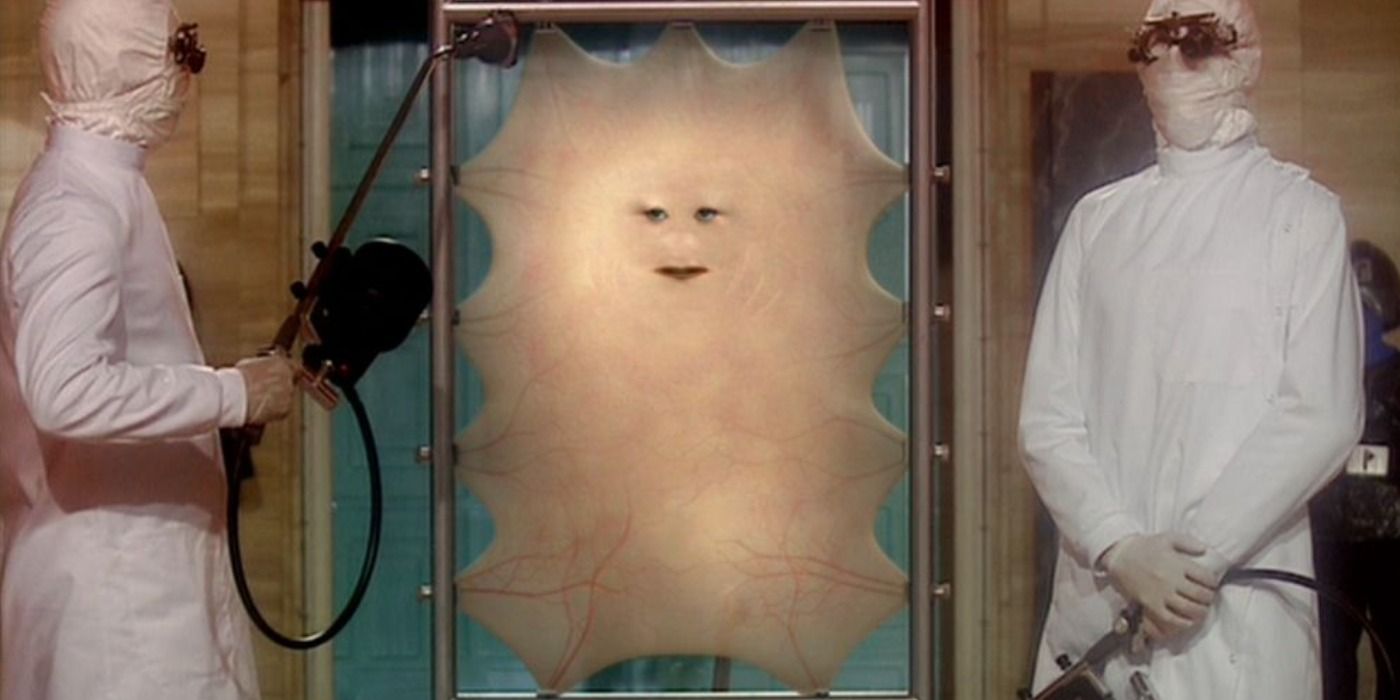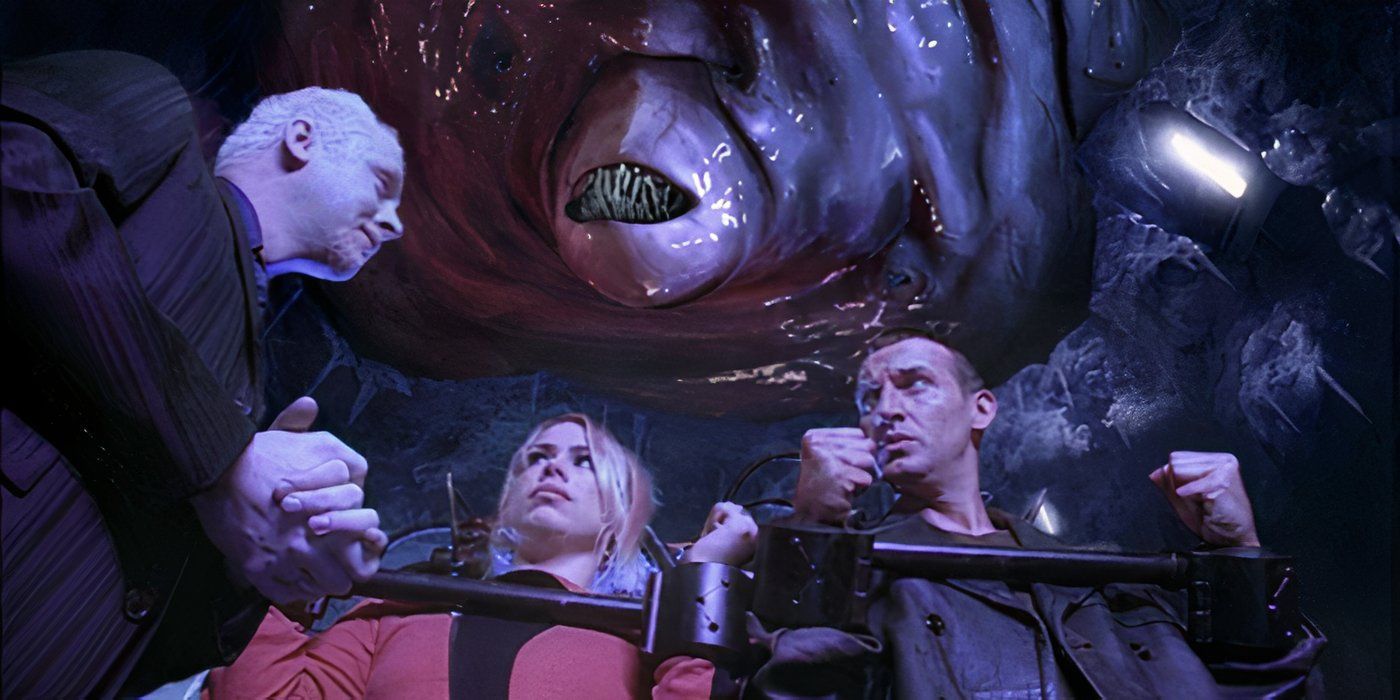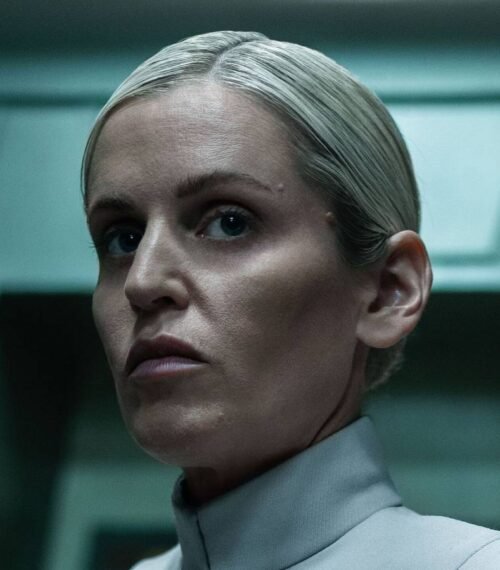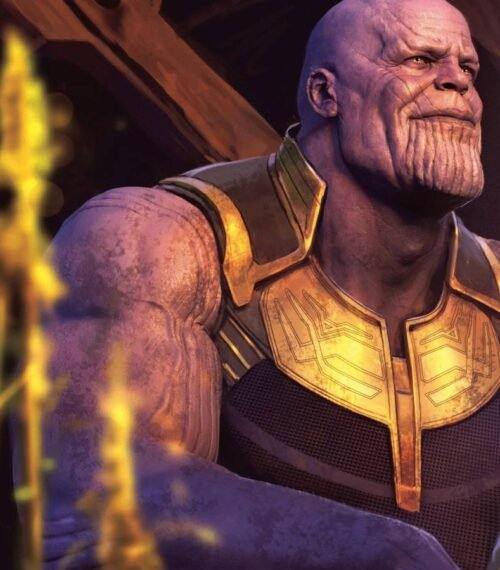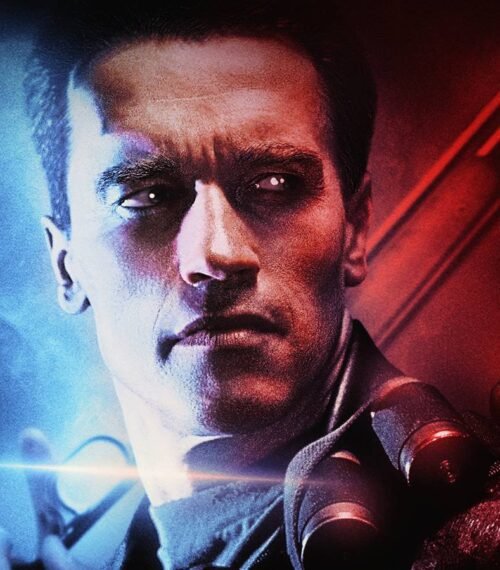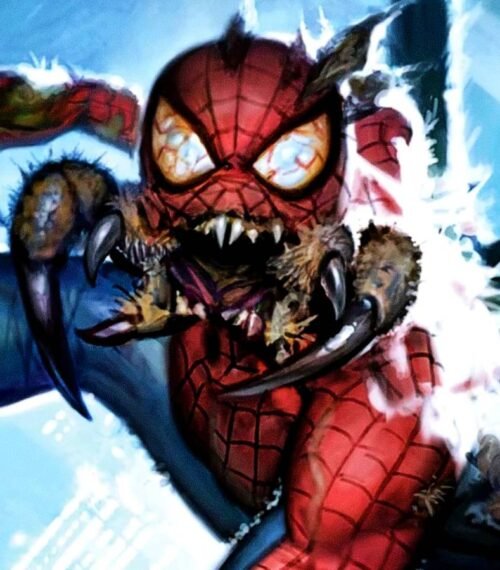Upon rewatching the series, there are some harsh realities of Russell T Davies’ first era of Doctor Who. While we have RTD to thank for bringing the show back to screens and providing some of the greatest Doctor Who stories of all time, there are some faults that are worth discussing.
RTD’s first era of Doctor Who begins with the Ninth Doctor in season 1 and ends with the 2009-2010 specials, which say goodbye to the Tenth Doctor. Out of all 17 Doctors in Doctor Who, these incarnations are two of the most notable, and they’re the faces of RTD’s original era.
While audiences remember these seasons’ stories fondly, over 20 years later, it’s worth pointing out that not everything about them is perfect. From an obsession with certain Doctor Who companions to boring villains, there are a few harsh realities of Russell T Davies’ first era as showrunner.
10 The Legacy Of Rose Tyler Is Romanticized
RTD's First Doctor Who Companion Is Amazing, But She Takes The Attention From Everyone Else
There’s no doubt Rose is a great companion, but she is also way overhyped and romanticized — and the possibility that Billie Piper could be Doctor Who’s Sixteenth Doctor proves it. Doctor Who is guilty of favoring Rose over everyone else from very early on, but especially after the Ninth Doctor regenerates into the Tenth.
The apparent romantic bond between the Time Lord and his pink-and-yellow human is something RTD cannot seem to let go of. Even after she gets stuck in Pete’s World, everything always comes back to Rose in some shape or form.
I think she is a fantastic companion, and each of the Doctor’s friends have something about them that makes them special. However, nothing about Rose makes her particularly stronger than the rest of the bunch. It makes sense to a certain degree, considering Rose is RTD’s first ever Doctor Who companion. However, the showrunner struggles to move on from her.
Every companion has a place in the Doctor’s hearts, but it is frustrating when Rose is always made the center of attention. The two-part season 4 finale, “The Stolen Earth” and “Journey's End,” are two of Russell T Davies’ best Doctor Who episodes, but Donna’s final adventure (at least for a while) primarily focuses on Rose’s return instead.
9 Martha Jones Is One Of Doctor Who's Best Companions, But Her Story Is Overshadowed
Martha Is A Hugely Underrated Doctor Who Character
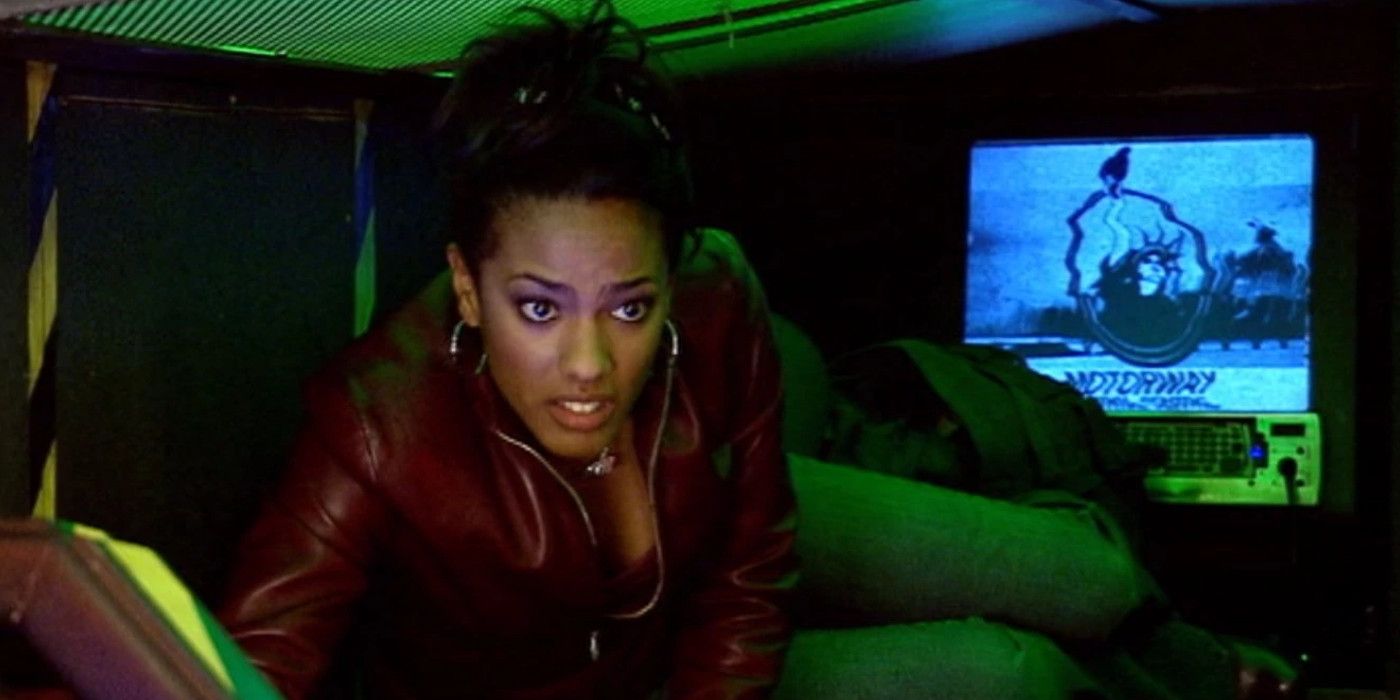
Annoyingly, Martha Jones’ best Doctor Who adventures happen after leaving the TARDIS. However, during her actual tenure as companion in RTD’s season 3, Martha doesn’t have a great run. The worst thing about how she is treated as a companion is how both RTD and the fandom perceive her feelings for the Doctor.
Yes, it’s clear that she feels something for the Time Lord, but it’s blown way out of proportion. Looking back, claiming Martha is “in love” with the Doctor is an exaggeration and doesn’t really fit her characterization. Unfortunately, though, a lot of Martha’s legacy is whittled down to her feelings for the Doctor and little else.
The reason Martha’s feelings for the Doctor are always under the spotlight is the Time Lord’s grief over losing Rose. While his feelings are warranted, poor Martha is constantly overshadowed by the memory of Rose, even in moments that aren’t about Martha’s crush on the Doctor.
Thankfully, when Martha returns in season 4, RTD expands the character to more than a lovestruck woman. There are a few references to it here and there, but there is no longer a huge focus on it. It’s a shame, as Martha gets a lot of hate for no reason, and it’s completely undeserved.
Martha is a strong and passionate medical professional. She doesn’t stand for any injustices, and she isn’t afraid to call people out for their behavior (even the Doctor). To say her crush on the Doctor is a part of her story is valid, but there’s so much more to Martha than that.
Martha walks the Earth to save the planet from the Master, and while the Doctor seems like her main motivation, it’s really about her family and humanity. She doesn’t think twice about jumping into danger for the sake of others, and if anything, Martha teaches the Tenth Doctor more about the way he treats others than anyone else.
8 The Tenth Doctor's Time Lord Victorious Is There From His Very First Episode
The Time Lord Victorious Reveal In "The Waters Of Mars" Isn't A Shock If You're Paying Attention
The Tenth Doctor’s Time Lord Victorious is depicted as a dark progression in the Time Lord that slowly emerges at the end of his regeneration cycle. However, eagle-eyed Doctor Who fans will recognize that the Time Lord Victorious is present in the Tenth Doctor from “The Christmas Invasion.” While he lets the Sycorax off, the Doctor doesn’t have the same understanding for Harriet Jones.
It’s baffling how the Doctor causes the downfall of a woman he refers to as “the architect of Britain's Golden Age” just a few episodes before. In season 1’s “World War Three,” the Ninth Doctor sings her praises as he watches her leave the rubble of Downing Street, yet a few months later, he’s destroying her career.
The newly regenerated Tenth Doctor doesn’t try to understand Harriet’s decision to assassinate the Sycorax as they leave the planet, nor does he think about how this is humanity’s first contact with aliens. Funnily enough, the Doctor tells us he is a “no second chances” kind of man, and he absolutely sticks to his word.
The Doctor’s treatment of Harriet in RTD’s first Doctor Who Christmas special is brutal. It’s hard to say, as Doctor Who doesn’t confirm it, but based on the Ninth Doctor’s comments about Harriet, it seems likely the Tenth alters human history by causing her downfall. This is something he does again in “The Waters of Mars,” and it’s interesting that the Tenth Doctor’s regeneration cycle begins and starts to end in a similar way.
7 RTD's First Era Season Arcs All Rely On Repeated Hidden Messages
There Is A Common Link Between All Of RTD's Overarching Doctor Who Stories
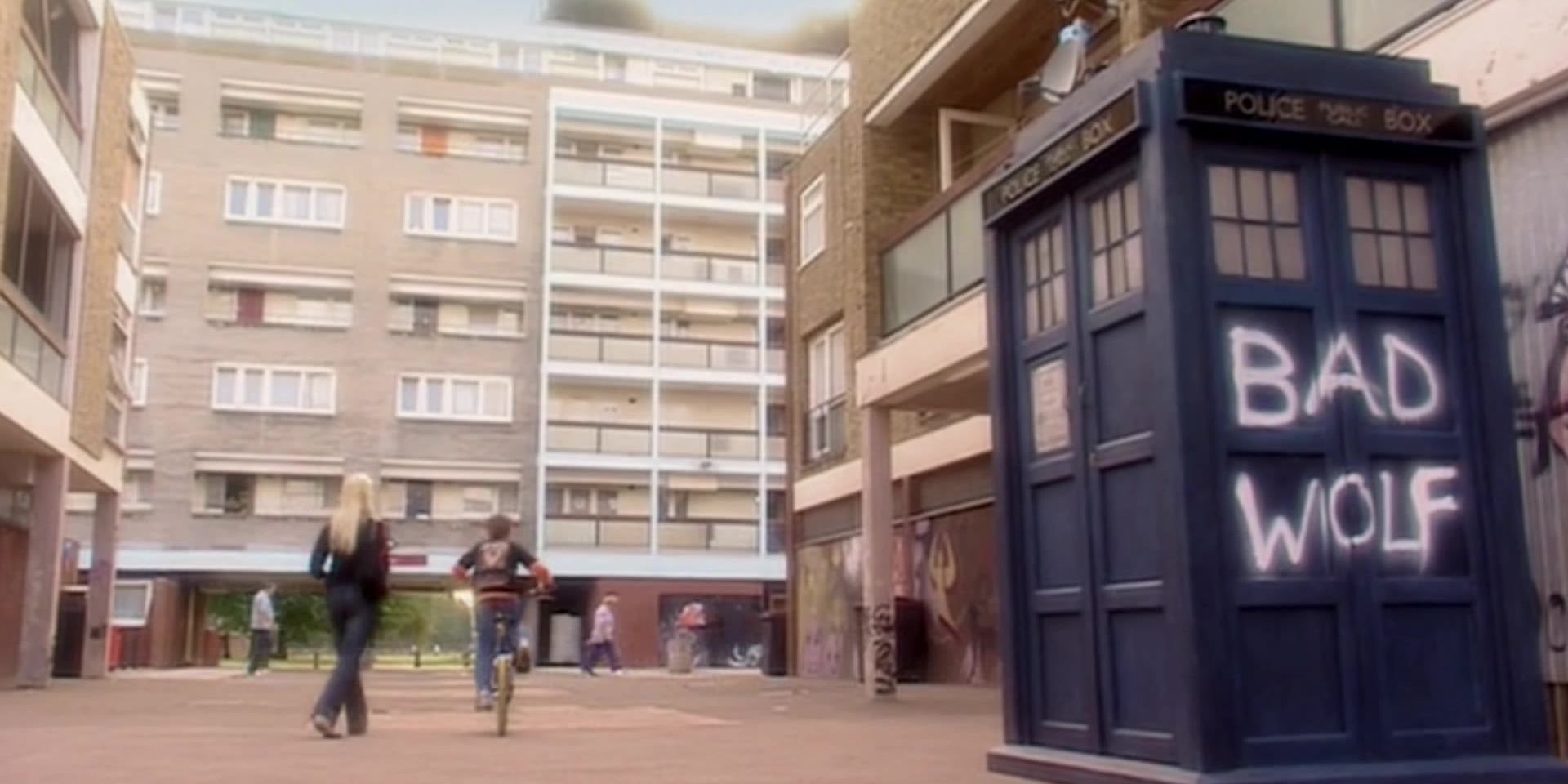
While they’re not the worst thing, it’s weird when you realize that all of RTD’s season arcs in his original era all rely on messages with a hidden meaning. In season 1, it’s Bad Wolf, a warning from Rose through the power of the heart of the TARDIS, which she spreads across time and space.
In season 2, there’s Torchwood, which is the estate the doctor and Rose meet Queen Victoria at in “Tooth and Claw,” which later becomes the Torchwood Institute. Season 3 has a couple: “You are not alone,” which spells out Yana, as in the Professor Yana incarnation of the Master, and, of course, the Vote Saxon posters hidden in the background of several scenes.
In season 4, the hidden message is “The bees are disappearing,” but this one is subtler and takes longer to pay off. Then, there’s the warning of “He will knock four times” in the 2009/2010 specials. These hidden messages are intriguing and a great storytelling device, but it’s strange that RTD uses them in every single season arc in his first era.
6 There Is No Need For The Cult Of Skaro's Dalek Thay & Dalek Jast
Dalek Thay & Dalek Jast Are Simply Placeholders
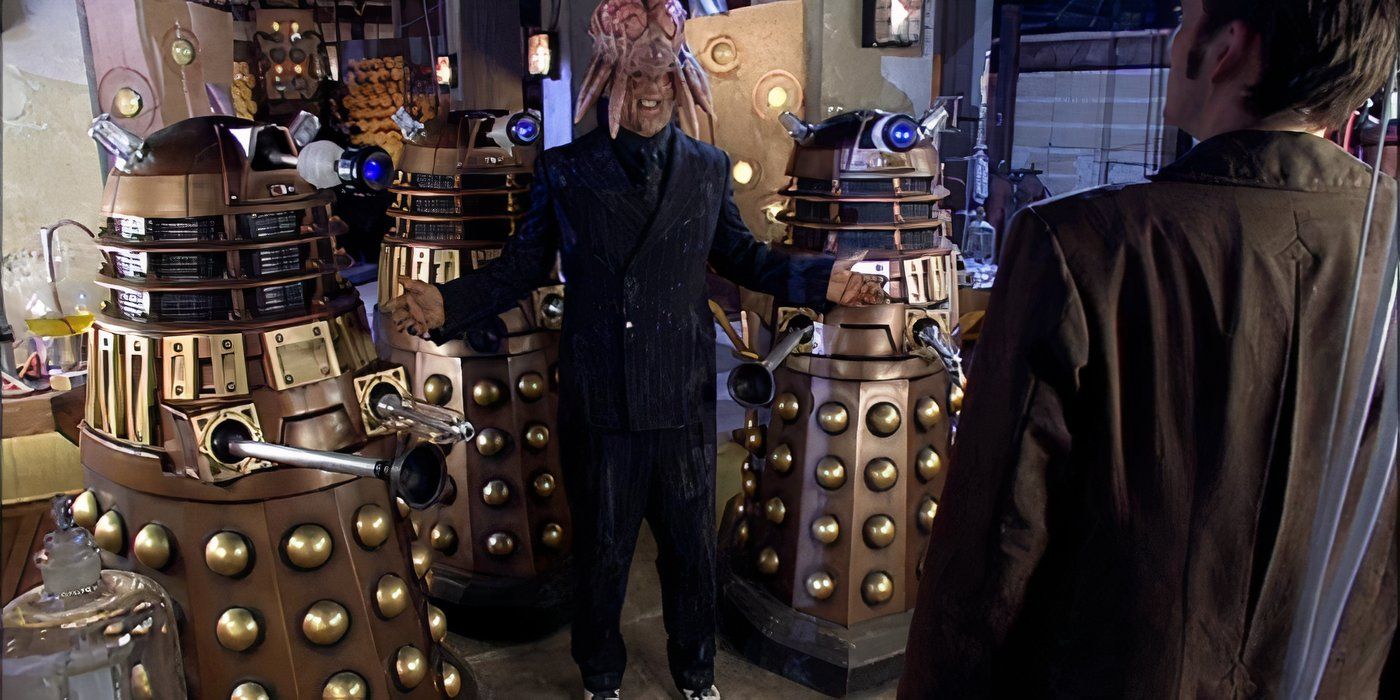
Across the Daleks’ history in Doctor Who, the Cult of Skaro are one of the most interesting versions of the villains. However, two out of four members are essentially useless. Sec becomes a human later and questions his Dalek nature, and Caan serves as part of the prophecy of the DoctorDonna.
Thay and Jast essentially exist to split up dialogue between the Daleks, however. While Thay is the Dalek in the iconic argument with the Cybermen in “Doomsday,” he looks exactly like the others design-wise, so it’s hard to tell them apart. Plus, both Jast and Thay are killed off in “Evolution of the Daleks” before audiences can even learn which is which.
5 RTD's First Three Christmas Specials Are Peak Doctor Who, But "The Next Doctor" Is A Flop
Jackson Lake's Story Isn't As Endearing As The Likes Of Astrid Peth Or Donna Noble's
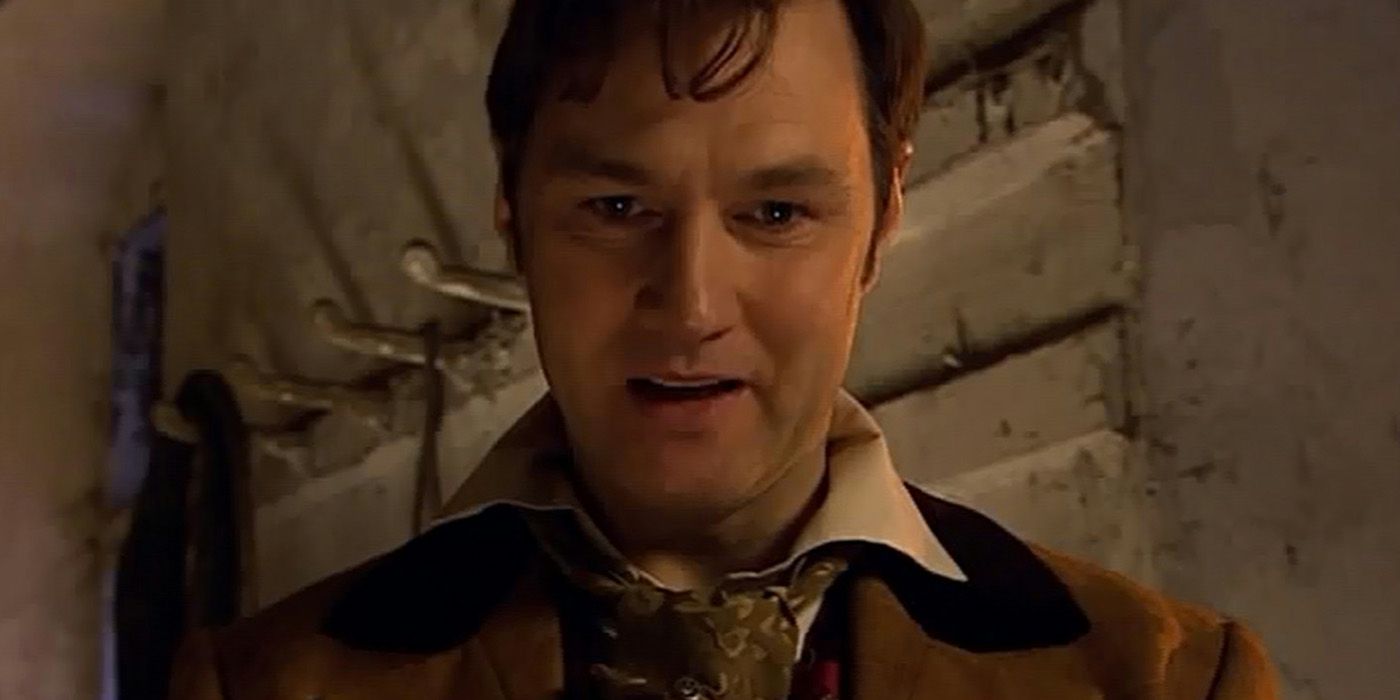
RTD’s Doctor Who Christmas specials are generally stellar, but his last (not including the Tenth Doctor’s departure in “The End of Time (Parts 1 and 2)," which are technically Christmas specials) is a disappointment. “The Next Doctor” has an interesting premise, but the execution is a little lackluster.
This episode once again reminds audiences of Rose Tyler for no real reason, introduces a boring one-off Doctor Who companion in Jackson Lake, and its resolution is rather anticlimactic in the grand scheme of things. While there are worse episodes, it’s a shame RTD’s last standalone Doctor Who Christmas episode isn’t to the same standards as his past attempts.
“The Next Doctor” does become somewhat relevant in Steven Moffat’s Big Bang story arc in season 5, with the Eleventh Doctor later questioning Amy about remembering a giant Cyberman in Victorian London from history books. However, as Doctor Who Christmas episodes go, it’s by far RTD’s weakest.
For Someone Who Likes To Avoid Talking About The Time War, The Doctor Never Stops Bringing It Up
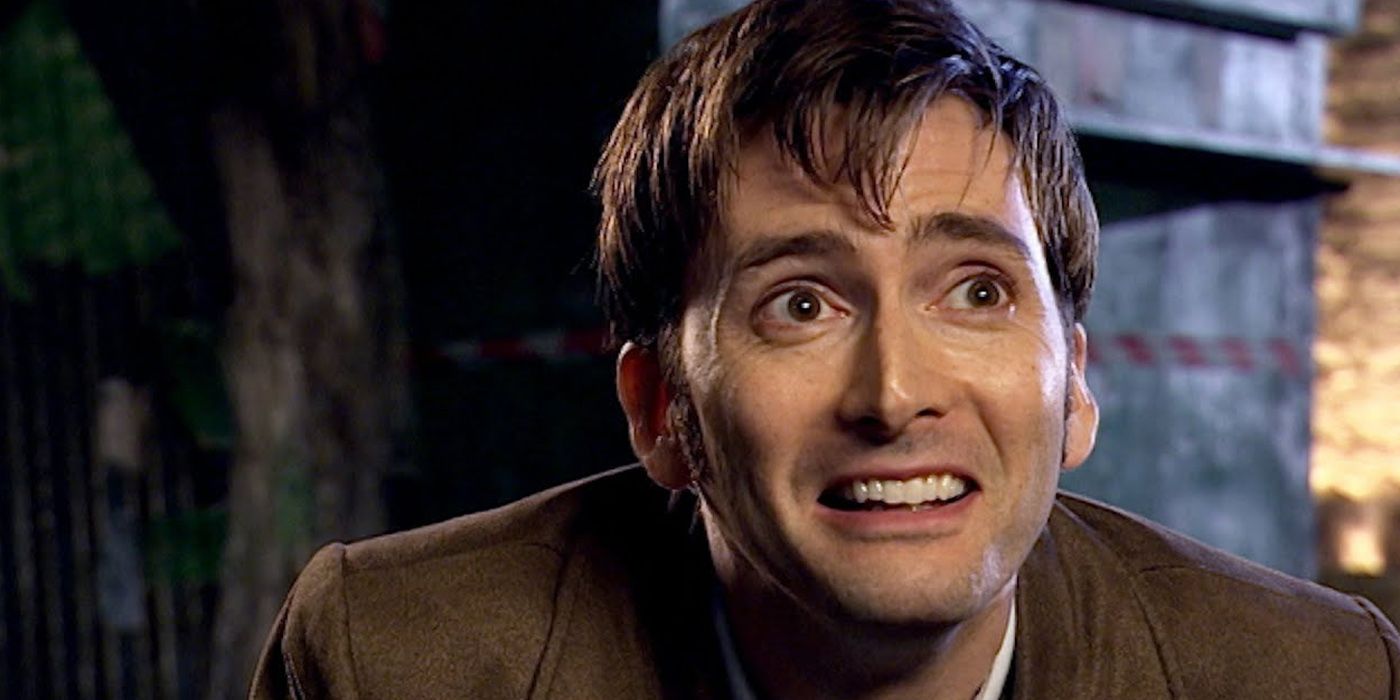
The story of Doctor Who’s First Time War is a truly endearing way to reintroduce the titular Time Lord to audiences, but the Doctor’s constant reflection and brooding over the war gets old. Throughout RTD’s original era, it feels like the Doctor stops to give a monologue on Gallifrey’s destruction in every episode.
While it naturally takes the Doctor some time to get over the trauma, it’s still frustrating. The Doctor is allowed to dwell on the past, but every time it’s mentioned, it’s always the same narrative. There isn’t a huge amount of context provided, and upon reflection, we don’t actually learn that much about the Time War in this era.
We know the Doctor plays a big part in it and ultimately brings it to a close, and that the Time Lords fought the Daleks, but the Doctor is always so vague about it. No incarnation from Nine onwards really tells intricate stories or delves into the deeper side of the politics; they simply brood and feel their emotions.
3 RTD's Season 1 Villains Are Too Childish
Season 1 Lacks Truly Terrifying Aliens & Monsters
RTD relies on the Daleks a lot, but he does invent some new Doctor Who villains in season 1, like the Slitheen, Cassandra, and the Jagrafess. The problem is, they’re very clearly designed with children in mind. As this is the first season after being off the air for decades, it makes sense, especially as the target audience is kids.
However, they don’t really have an edge, and children don’t find them scary. There’s a reason why these villains are yet to make a return to Doctor Who, and while they’re camp and fun to remember, they’re not exactly huge threats or worthy of being considered iconic antagonists in the franchise.
Of course, there are even weaker villains of RTD’s after season 1, like the Absorboloff from “Love & Monsters,” but the showrunner does later create some interesting aliens. The Judoon and Chan-tho are great for example, and RTD also introduces Doctor Who’s Pantheon of the Gods through both The Sarah Jane Adventures and “Turn Left” in this era.
The Doctor Always Seems To Be Flirting
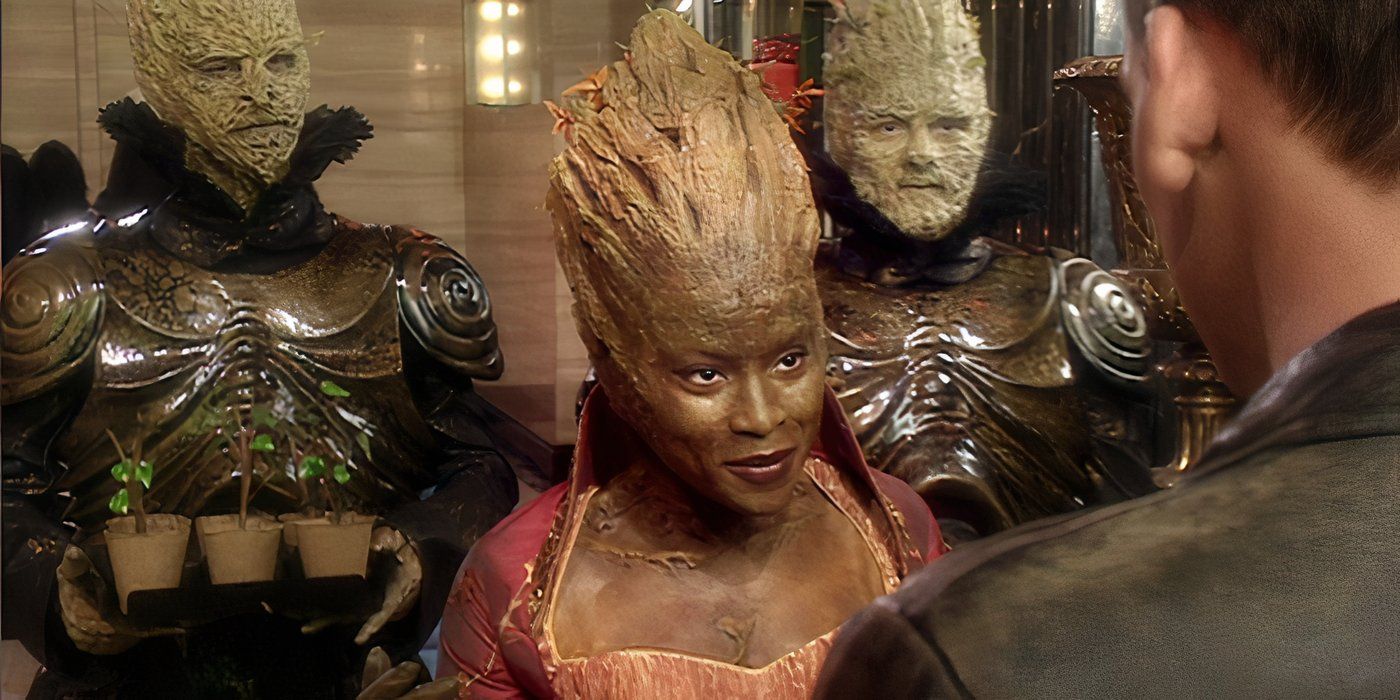
Although Christopher Eccleston and David Tenannt’s Doctors are undoubtedly lovely to look at, it’s weird that pretty much everyone they encounter on their travels seems to take an interest in them. From Jabe in “The End of the World” to Wilf’s friend Minnie in “The End of Time,” every supporting or guest character throughout RTD’s first era fancies the Doctor.
The Doctor often doesn’t reciprocate these feelings, but sometimes, he does. Take Madame de Pompadour in “The Girl in the Fireplace,” for example. He even has a romance with human Joan Redfern in “Human Nature” and “The Family of Blood,” too.
It’s comical at first, but it gets boring. At times, it feels like Doctor Who forgets it’s a sci-fi TV show, and it’s easy to roll your eyes when the Doctor is yet again distracted by a random character trying to flirt with them. Unfortunately, this isn’t something that changes in later installments of Doctor Who’s modern era.
1 Most Of The Best Episodes Of RTD's Original Era Are Written By Others
Several Standouts From RTD's First Era Are By Steven Moffat
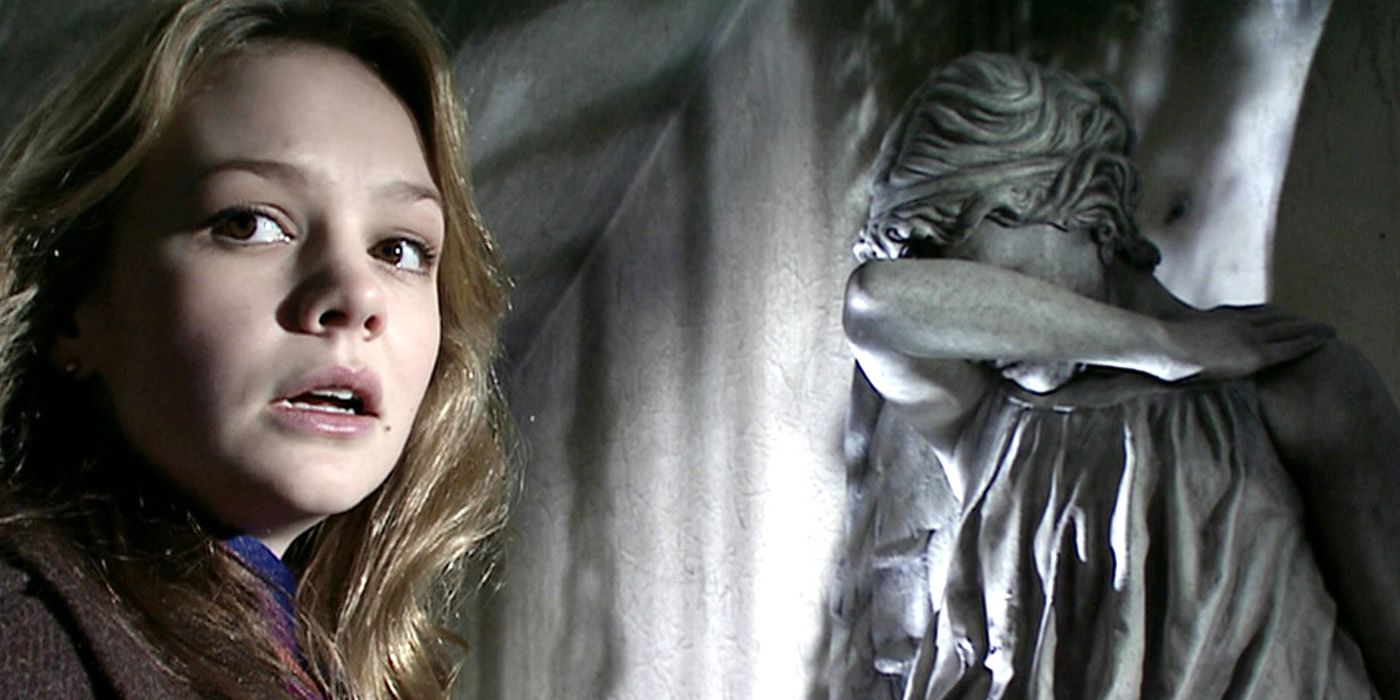
It’s worth noting that, despite his role as showrunner, RTD didn’t actually write every single episode in his era. There are some great episodes from him, though, like Doctor Who’s iconic season 4 episode “Midnight.” But a majority of the big hitters are written by other people.
|
Episodes Written By Russell T Davies In His Original Doctor Who Era |
|
|---|---|
|
Episode Title |
Season & Episode |
|
"Rose" |
Season 1, Episode 1 |
|
"The End of the World" |
Season 1, Episode 2 |
|
"Aliens of London" & "World War Three" |
Season 1, Episodes 4 & 5 |
|
"The Long Game" |
Season 1, Episode 7 |
|
"Boom Town" |
Season 1, Episode 11 |
|
"Bad Wolf" & "The Parting of the Ways" |
Season 1, Episodes 12 & 13 |
|
"The Christmas Invasion" |
Christmas 2005 |
|
"New Earth" |
Season 2, Episode 1 |
|
"Tooth and Claw" |
Season 2, Episode 2 |
|
"Love & Monsters" |
Season 2, Episode 10 |
|
"Army of Ghosts" & "Doomsday" |
Season 2, Episode 12 & 13 |
|
"The Runaway Bride" |
Christmas 2006 |
|
"Smith and Jones" |
Season 3, Episode 1 |
|
"Gridlock" |
Season 3, Episode 3 |
|
"Utopia" / "The Sound of Drums" / "Last of the Time Lords" |
Season 3, Episodes 11, 12, & 13 |
|
"Voyage of the Damned" |
Christmas 2007 |
|
"Partners in Crime" |
Season 4, Episode 1 |
|
"Midnight" |
Season 4, Episode 10 |
|
"Turn Left" |
Season 4, Episode 11 |
|
"The Stolen Earth" & "Journey's End" |
Season 4, Episodes 12 & 13 |
|
"The Next Doctor" |
Christmas 2008 |
|
"Planet of the Dead" |
2009–2010 Specials, Episode 1 |
|
"The Waters of Mars" |
2009–2010 Specials, Episode 2 |
|
"The End of Time" (Parts 1 & 2) |
2009–2010 Specials, Episodes 3 & 4 |
For example, “Blink,” “Silence in the Library,” and “Forest of the Dead” are three of Steven Moffat’s best Doctor Who episodes, and they’re standouts in RTD’s first era. RTD does a great job at writing characters and overarching season arcs in his Doctor Who original era, but creating strong and powerful standalone episodes is clearly not a strength of his.












































































































